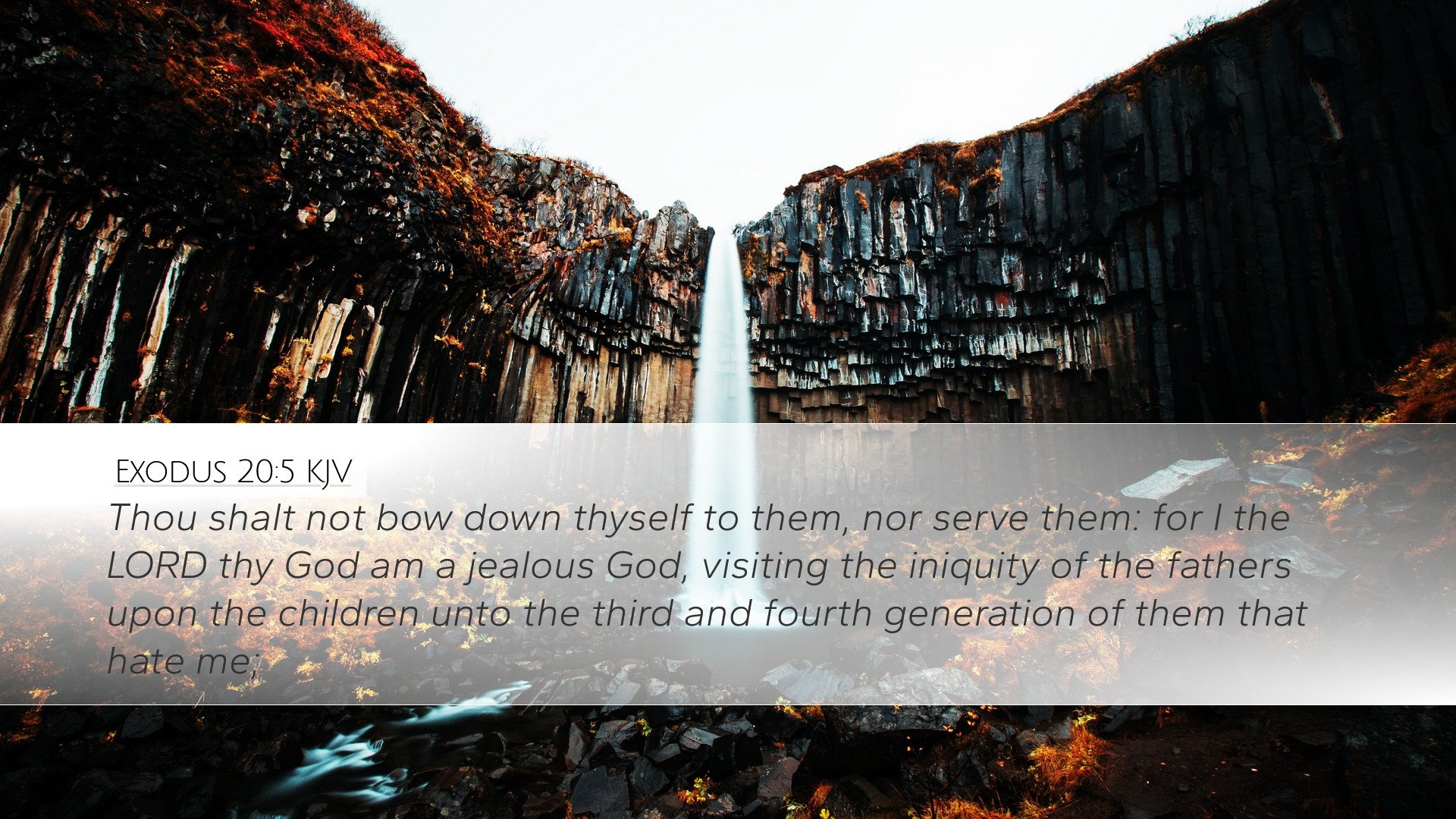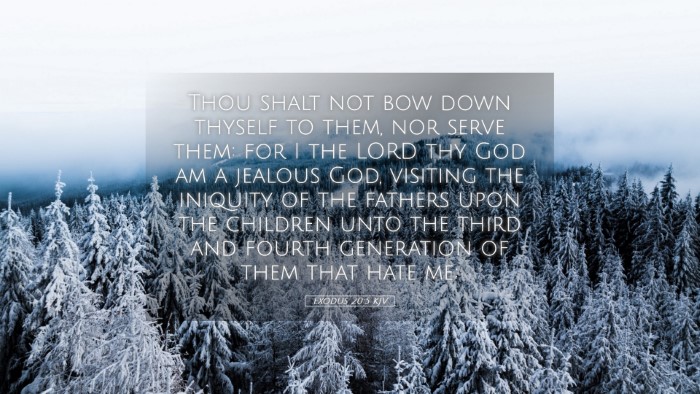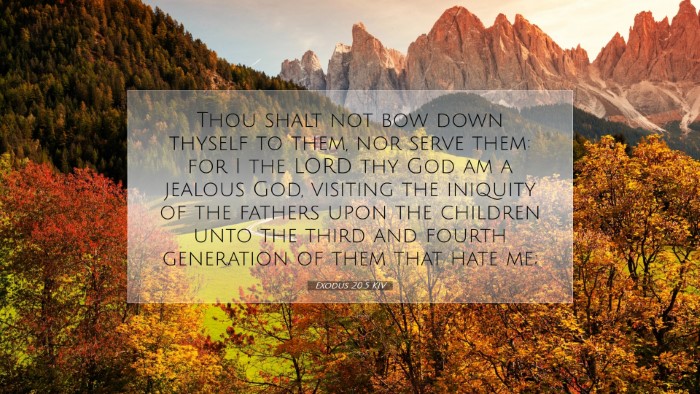Exodus 20:5 Commentary
Verse Reference: Exodus 20:5
"You shall not bow down to them or serve them, for I, the Lord your God, am a jealous God, visiting the iniquity of the fathers upon the children to the third and fourth generation of those who hate Me,..."
Introduction
Exodus 20:5 is a pivotal verse in which God articulates the seriousness of idolatry and outlines the consequences of turning away from Him. The verse not only emphasizes God’s nature—His jealousy—but also presents the theological implications of familial iniquity and divine justice. In this commentary, we will explore insights from public domain commentators such as Matthew Henry, Albert Barnes, and Adam Clarke.
Divine Jealousy
Matthew Henry remarks that God's jealousy in this context is a reflection of His zeal for the honor of His name and the love He has for His people. Henry describes this jealousy as a righteous and holy attribute, wherein God desires exclusive fidelity from those He has redeemed. The jealousy of God, therefore, is contrasted to idolatrous practices that divide the hearts and minds of the worshippers:
- Henry states: "As God is jealous for His own glory, so He is jealous for the love of His servants."
- He reinforces that idolaters not only forsake God but also invite His displeasure upon themselves and their descendants.
Consequences of Idolatry
Albert Barnes provides an important examination of the consequences outlined in the verse, particularly the phrase "visiting the iniquity of the fathers upon the children." Barnes elucidates that this is not a capricious act of divine retribution but rather a principle of justice that illustrates the pervasive effects of sin:
- Barnes highlights that familial sin often impacts future generations, shaping communal and familial identities.
- He insists that while God punishes for sin, each individual is ultimately responsible for their own actions, affirming God's justice.
- Furthermore, God’s judgement is proportional to individuals' rejection of Him, evidenced in their response to idolatry.
The Nature of Hate
Adam Clarke emphasizes the significance of the phrase "those who hate Me," interpreting hate not merely as an emotional response but as a deliberate choice against God’s commandments. Clarke articulates that a life characterized by idolatry is a life in opposition to God's nature:
- Clarke asserts that true love for God manifests in obedience. Conversely, disobedience and rebellion are manifestations of hatred.
- Moreover, Clarke notes that this phrase serves as a sobering reminder for believers to examine their own hearts for idols or any competing loves that may hinder their relationship with God.
The Generational Aspect of Sin
Expanding on the generational impact, all three commentators address how transgressions create a legacy that affects successive generations. Henry espouses the view that children often inherit the propensity toward sin exhibited by their parents:
- This highlights the importance of leading godly examples to pave a path of righteousness for the next generation.
- Barnes remarks that while God does hold future generations accountable, each individual still retains free will to choose righteousness.
The Call to Repentance
While acknowledging the weight of judgment, it is imperative to note that the scripture gives room for mercy and forgiveness through repentance. Both Henry and Barnes offer insights into this aspect:
- Henry suggests that God's love seeks to prevail and lead individuals away from the path of destruction toward the path of life.
- Barnes adds that the offer of grace and mercy through repentance should serve as a motivation for individuals to turn back to God, breaking the chain of inherited sin.
Theological Reflections
This verse raises significant theological reflections regarding God's character and the moral responsibilities of humanity:
- God's Justice and Mercy: The tension between God's justice in punishing sin and His mercy in extending grace is profoundly illustrated here.
- Human Responsibility: Individuals are challenged to take ownership of their faith and actions, refusing to passively inherit the consequences of parental sin.
- Idolatry as a Contemporary Issue: The modern believer must reflect on contemporary idols that may align with the ancient practices of idolatry and ensure that their love for God is uncompromised.
Conclusion
Exodus 20:5 serves as an admonition about the gravity of idolatry and the call to earnest devotion to the Lord. The insights from Matthew Henry, Albert Barnes, and Adam Clarke offer a comprehensive understanding of this verse, urging believers to remain vigilant against the allure of false gods. To honor God is to pursue Him wholeheartedly, understanding the implications of our worship, familial legacy, and the profound nature of our covenant relationship with Him.


